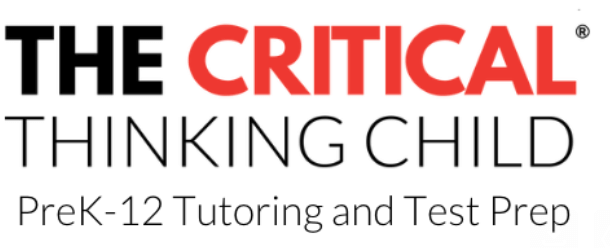Chatty children make for successful students
How parents can improve their child’s vocabulary
You probably remember your child’s first words, and the excitement around them. You likely recall how thrilled you were to witness the transition from baby-babble to full-fledged words and sentences.
It’s an exciting time in a child’s development, and one of the most important. According to The Urban Child Institute the child’s brain grows to 80% of its adult size between the ages of zero and three. Not only that, but their brain is twice as active as an adult’s brain. During these years, your child is absorbing new knowledge at an incredible rate, and that includes language.
How much language is your child learning? The answer depends on you.
As a parent, you have the ability to directly influence your child’s vocabulary development. The more you encourage your child to speak, the larger their vocabulary becomes.
Vocabulary as a measure of critical thinking
When your child learns to speak, far more is happening than you might imagine. While they are learning the names of objects, they are also beginning to think about their world and how to interact with it.
A study conducted by child psychologists and researchers Betty Hart and Todd Risley found that children who heard more words prior to their fourth birthday were better prepared academically. The study found that high-achieving students were exposed to as many as 30 million more words than their peers. These children were not just better at reading and recognizing words, but they also succeeded better on tests and progressed more quickly than their classmates. The development of these critical thinking skills starts long before your child attends preschool. The more words your child learns, and the more they hear encouragement to keep learning, the more they are able to think critically about their environment.
It all starts with you
Hart and Risley’s study served as the foundation for Dana Suskind’s Thirty Million Words® Initiative, a program designed to help parents close the gap.
A huge chunk of vocabulary building happens before your child ever attends school. This puts you, the parent, in a powerful position. You can have a big impact on your child’s success by encouraging their vocabulary development.
Read to your child
According to Lemi-Ola Erinkitola, executive director of the Chicago chapter of the Children’s Reading Foundation, just 20 minutes of reading per day can make a difference. If you’re strapped for time, try setting up a daily routine, like reading to your child before bed or having story time with all of your children every afternoon. Seek out books on topics that interest your child, and make sure to use your public library.
Ask questions instead of giving commands
While it can be easy to tell your child what to do, prompting them with questions will help them think more deeply about their world. For example, instead of telling your child to brush their teeth, you can ask them what they need to do prior to getting into bed.
Allowing your child to supply the answers gives them the opportunity to think for themselves and create new associations and meaning.
Keep a running dialog
It may sound like babbling, but your enthusiastic young talker is learning valuable skills. Engaging in conversation – even if you don’t entirely understand what it’s about – is an easy way to encourage your child to continue experimenting. The more they experiment, the more they understand.
It’s also important to note that the more successful children in Hart and Risley’s study heard significantly more encouragement during their formative years, whereas less successful children heard more discouragement. Make sure to keep your tone positive as your child starts to make connections about language and the world around them.
Encourage your child to ask “Why?”
The ability to ask probing questions about the world and then seek out answers is an important skill, leading to stronger academic achievement and confidence.
Rather than simply answering your child with an explanation when they inevitably ask “Why?”, encourage them to find their own solutions by relating their questions to knowledge they already have. Turn it into a game, and see how deep of an understanding they’re able to build.
Small, simple steps make a big difference
As parents, we want what is best for our children. Our aim is for them to learn and grow in ways that develop confidence and cultivate success. While this can seem like a big undertaking, it is the small, everyday moments that add up to make a difference. Taking a few minutes to read to your child or engaging their critical thinking skills through questions and answers can make a huge impact over time.
Article: Why is building vocabulary important and how to build vocabulary with children





Trackbacks/Pingbacks